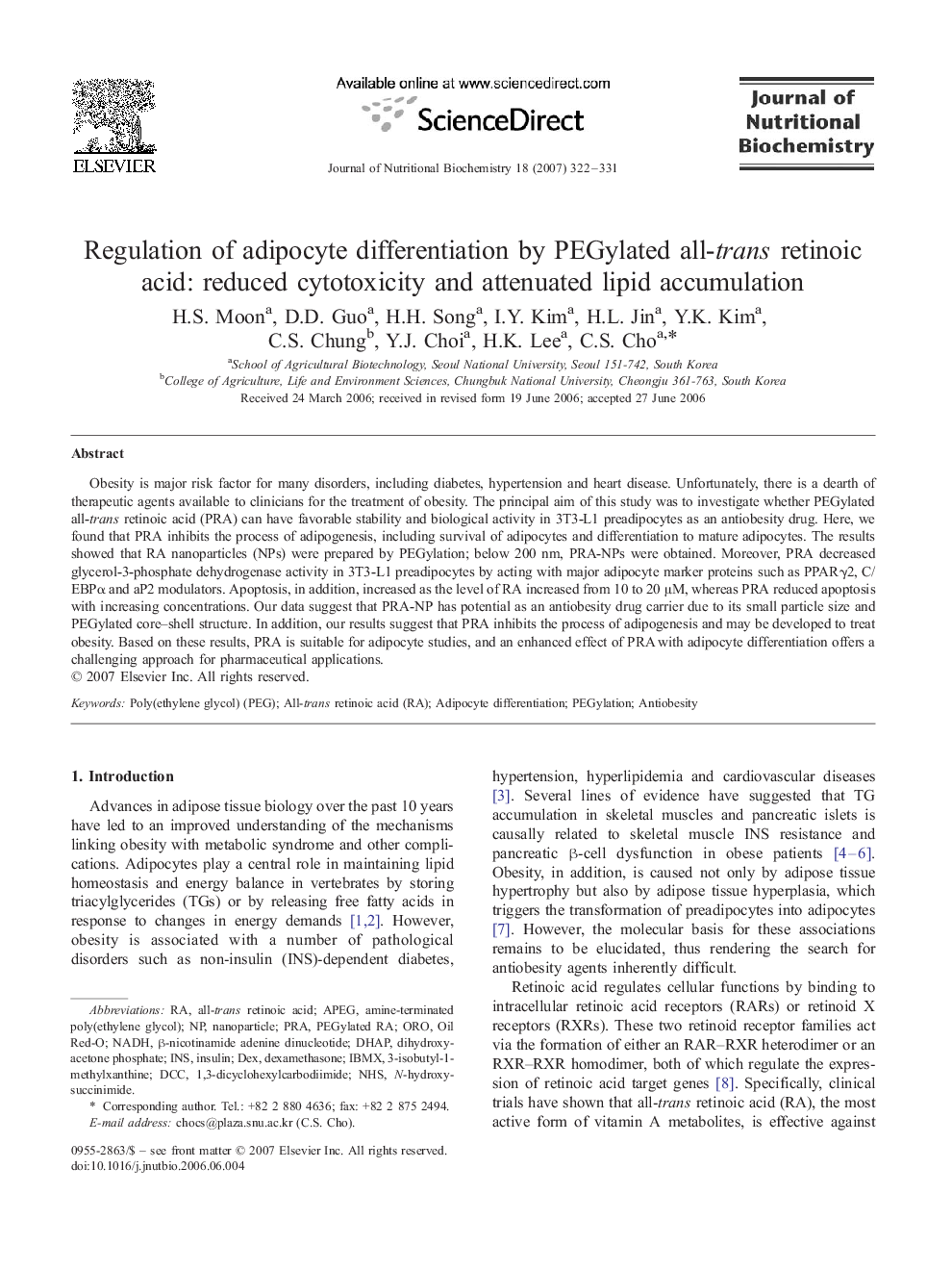| Article ID | Journal | Published Year | Pages | File Type |
|---|---|---|---|---|
| 1990754 | The Journal of Nutritional Biochemistry | 2007 | 10 Pages |
Obesity is major risk factor for many disorders, including diabetes, hypertension and heart disease. Unfortunately, there is a dearth of therapeutic agents available to clinicians for the treatment of obesity. The principal aim of this study was to investigate whether PEGylated all-trans retinoic acid (PRA) can have favorable stability and biological activity in 3T3-L1 preadipocytes as an antiobesity drug. Here, we found that PRA inhibits the process of adipogenesis, including survival of adipocytes and differentiation to mature adipocytes. The results showed that RA nanoparticles (NPs) were prepared by PEGylation; below 200 nm, PRA-NPs were obtained. Moreover, PRA decreased glycerol-3-phosphate dehydrogenase activity in 3T3-L1 preadipocytes by acting with major adipocyte marker proteins such as PPARγ2, C/EBPα and aP2 modulators. Apoptosis, in addition, increased as the level of RA increased from 10 to 20 μM, whereas PRA reduced apoptosis with increasing concentrations. Our data suggest that PRA-NP has potential as an antiobesity drug carrier due to its small particle size and PEGylated core–shell structure. In addition, our results suggest that PRA inhibits the process of adipogenesis and may be developed to treat obesity. Based on these results, PRA is suitable for adipocyte studies, and an enhanced effect of PRA with adipocyte differentiation offers a challenging approach for pharmaceutical applications.
